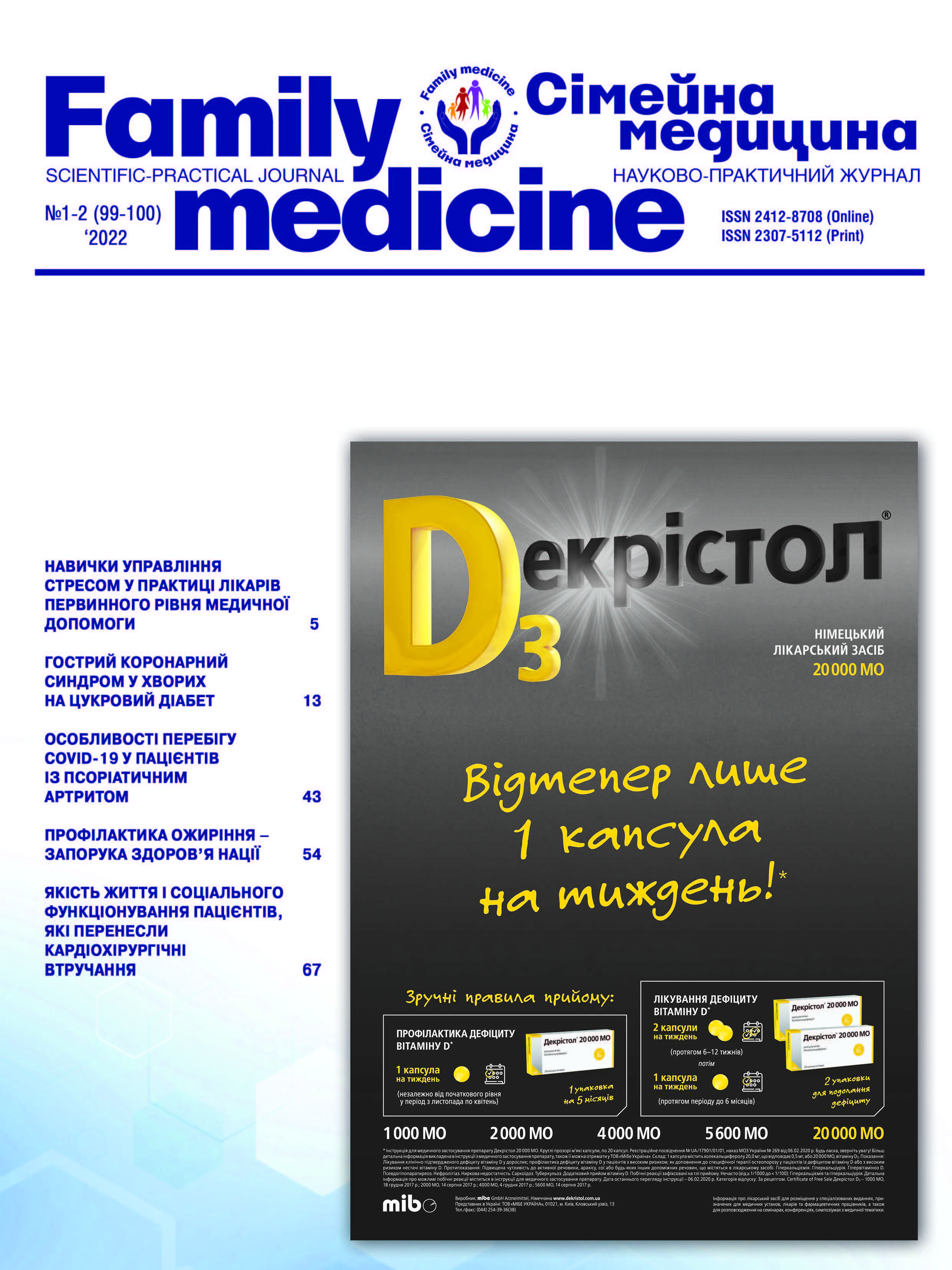MRI as an Effective Tool for the Diagnosis and Monitoring of Leffler Endocarditis at the Stages of Longitudinal Observation
##plugins.themes.bootstrap3.article.main##
Abstract
Hypereosinophilic syndrome (HES) is an extremely rare disease that is not always diagnosed, and the lack of statistic data does not let to determine its real incidence.
Among patients men predominate, the ratio of men and women is 9: 1, the most vulnerable age is from 20 to 50 years. The familial hypereosinophilia is inherited disease of autosomal dominant type. Two-year mortality was recorded in half of the cases of Leffler’s endocarditis with progressive fibrosis due to heart failure and thromboembolic complications.
Leffler’s endocarditis and endomyocardial fibrosis as components of restrictive cardiomyopathy are accompanied by eosinophilia. The story of the discovery of eosinophils is closely connected to the name of Paul Ehrlich; the further idea of tracing the connection between eosinophilia and the involvement of the heart and other organs belongs to Leffler.
In the presence of Leffler’s syndrome, the probability of thrombosis in the heart cavities and determination of the stage of the disease were analyzed by longitudinal observation using cardiac MRI.
The described clinical case of Leffler syndrome in a young man in real clinical practice clearly demonstrates the difficulties of diagnosis in the outpatient phase, need in interdisciplinary approach in the work of the team “heart team” during the hospital period, the role and importance of long-term cardiac MRI monitoring of the selected optimal therapy.
Leffler’s syndrome in real clinical practice requires from physicians of various specialties, including family physicians, knowledge of etiology, pathogenesis, clinical masks of disease manifestation and tactics of patient management in the outpatient phase.
MRI of the heart remains the “gold standard” for diagnosis and longitudinal monitoring of patients with Leffler syndrome.
##plugins.themes.bootstrap3.article.details##

This work is licensed under a Creative Commons Attribution 4.0 International License.
Authors retain the copyright and grant the journal the first publication of original scientific articles under the Creative Commons Attribution 4.0 International License, which allows others to distribute work with acknowledgment of authorship and first publication in this journal.
References
Alam A, Thampi S, Saba SG, Jermyn R. Loeffler Endocarditis: A Unique Presentation of Right-Sided Heart Failure Due to Eosinophil-Induced Endomyocardial Fibrosis. Clin Med Insights Case Rep. 2017;10:1179547617723643. doi: 10.1177/1179547617723643.
Allderdice C, Marcu C, Kabirdas D. Intracardiac Thrombus in Leukemia:Role of Cardiac Magnetic Resonance Imaging in Eosinophilic Myocarditis. CASE (Phila). 2018;2(3):114–7. doi: 10.1016/j.case.2017.12.003.
Amini R, Nielsen C. Eosinophilic myocarditis mimicking acute coronary syndrome secondary to idiopathic hypereosinophilic syndrome: a case report. J Med Case Rep. 2010;4:40. doi: 10.1186/1752-1947-4-40.
Bilinska ZT, Bilinska M. Unexpected eosinophilic myocarditis in a young woman with rapidly progressive dilated cardiomyopathy. Int J Cardiol. 2002;86(2-3):295–7. doi: 10.1016/s0167-5273(02)00304-2.
Boggild AK, Keystone JS, Kain KC. Tropical pulmonary eosinophilia: a case series in a setting of nonendemicity. Clin Infect Dis. 2004;39(8):1123–8. doi: 10.1086/423964.
Chen YW, Chang YC, Su CS, Chang WC, Lee WL, Lai CH. Dramatic and early response to low-dose steroid in the treatment of acute eosinophilic myocarditis: a case report. BMC Cardiovasc Disord. 2017;17(1):115. doi: 10.1186/s12872-017-0547-9.
Cilliers AM, Adams PE, Mocumbi AO. Early presentation of endomyocardial fibrosis in a 22-month-old child: a case report. Cardiol Young. 2011;21(1):101–3. doi: 10.1017/S1047951110001460.
Doyen D, Buscot M, Eker A, Della.monica J. Endomyocardial fibrosis complicating primary hypereosinophilic syndrome. Intensive Care Med. 2018;44(12):2294–5. doi: 10.1007/s00134-018-5300-z.
Dregoesc MI, Iancu AC, Lazar AA, Balanescu S. Hypereosinophilic syndrome with cardiac involvement in a patient with multiple malignancies. Med Ultrason. 2018;20(3):399–400. doi: 10.11152/mu-1574.
Farid A, Stauber B, Khamishon S, Fedder D. No Loeffing Matter: The Dilemma of Loeffler’s Endocarditis Am J Med. 2020;133(5):e169-e72. doi: 10.1016/j.amjmed.2019.08.053.
Gao M, Zhang W, Zhao W, Qin L, Pei F, Zheng Y. Loeffler endocarditis as a rare cause of heart failure with preserved ejection fraction: A case report and review of literature.Medicine (Baltimore). 2018;97(11):e0079. doi:10.1097/MD.0000000000010079.
Gleich GJ, Adolphson CR, Leiferman KM. The biology of the eosinophilic leucocyte. Annu Rev Med. 1993;44:85–101. doi: 10.1146/annurev.me.44.020193.000505.
Gottdiener JS, Maron BJ, Schooley RT, Harley JB, Roberts WC, Fauci AS. Two-dimensional echocardiographic assessment of the idiopathic hypereosinophilic syndrome. Anatomic basis of mitral regurgitation and peripheral embolization. Circulation. 1983;67(3):572–8. doi: 10.1161/01.cir.67.3.572.
Hayashi S, Isobe M, Okubo Y, Suzuki J, Yazaki Y, Sekiguchi M. Improvement of eosinophilic heart disease after steroid therapy: successful demonstration by endomyocardial biopsied specimens. Heart Vessels 1999;14(2):104–8. doi: 10.1007/BF02481750.
Hernandez CM, Arisha MJ, Ahmad A, Oates E, Nanda NC, Nanda A, et al. Usefulness of three-dimensional echocardiography in the assessment of valvular involvement in Loeffler endocarditis. Echocardiography. 2017;34(7):1050–6 doi:10.1111/echo.13575.
Jin X, Ma C, Liu S, Guan Z, Wang Y, Yang J. Cardiac involvements in hypereosinophilia-associated syndrome: Case reports and a little review of the literature. Echocardiography. 2017;34(8):1242–6. doi: 10.1111/echo.13573.
Kleinfeldt T, Hueseyin I, Nienaber CA. Hypereosinophilic syndrome: a rare case of Loeffler’s endocarditis documented on cardiac MRI. Int J Cardiol. 2011;149(1):e30–2. doi: 10.1016/j.ijcard.2009.03.059.
Lavies J, Sapspord R, Brooksby I, Olsen EG, Spry CJ, Oakleg CM, et al. Successful surgical treatment of two patients with endomyocardial disease. Br Heart J. 1981;46(4):438–45. doi: 10.1136/hrt.46.4.438.
Nanagas VC, Kovalszki A. Gastrointestinal Manifestations of Hypereosinophilic Syndromes and Mast Cell Disorders: a Comprehensive Review. Clin Rev Allergy Immunol. 2019;57(2):194–212. doi: 10.1007/s12016-018-8695-y.
Ogbogu PU, Rosing DR, Horne MK 3rd. Cardiovascular manifestations of hypereosinophilic syndromes. Immunol Allergy Clin North Am. 2007;27(3):457–75. doi: 10.1016/j.iac.2007.07.001.
Olsen EGJ, Spry CJF. Relation between eosinophilia and endomyocardial disease. Prog Cardiovasc Dis. 1985;27(4):241–54. doi: 10.1016/0033-0620(85)90008-8.
Ommen SR, Seward JB, Tajik AJ. Clinical and echocardiographic features of hypereosinophilic syndromes Am J Cardiol 2000;86(1):110–3. doi: 10.1016/s0002-9149(00)00841-9.
Priglinger U, Drach J, Ullrich R. Idiopathic eosinophilic endomyocarditis in the absence of peripheral eosinophilia. Leuk Lymphoma 2002;43(1):215–8. doi: 10.1080/10428190210184.
Spry CJ, Tai PC, Davies J. The cardiotoxicity of eosinophils. Postgrad Med J. 1983;59(689):147–53. doi: 10.1136/pgmj.59.689.147.
Tai PC, Spry CJF, Olsen EGJ, Ackerman SJ. Deposits of eosinophil granule proteins in cardiac tissues in patients with eosinophilic endomyocardial disease. Lancet. 1987;1(8534):643–7. doi: 10.1016/s0140-6736(87)90412-0.
Netyazhenko VZ, Malchevska TY, Netyazhenko NV, Valihura MS, Mostovyy SYE Kozachyshyn NI, ta in. Klinichni masky hipereozynofilnoho syndromu: trudnoshchi diahnostyky (klinichnyy vypadok syndromu Leflera). Zdorovya Ukr. 2019;4 (Dod №1 Kardiol Revmatol Kardiokhirurhiya): 30–4.





